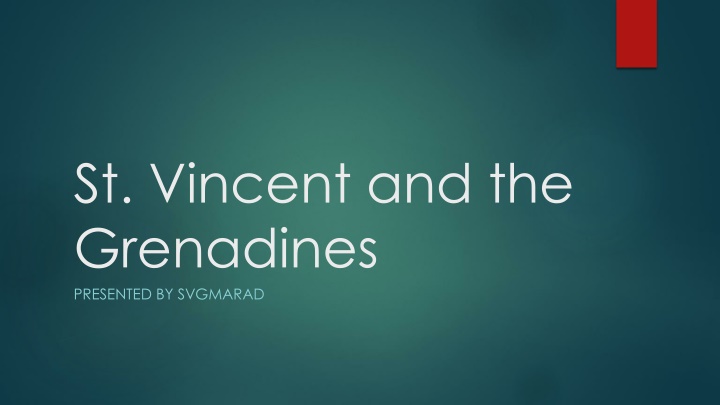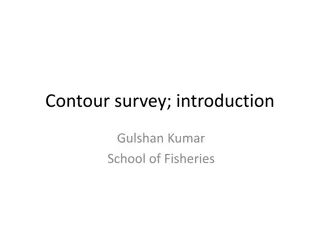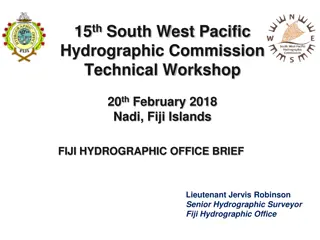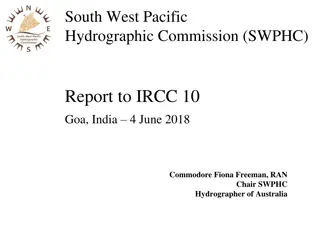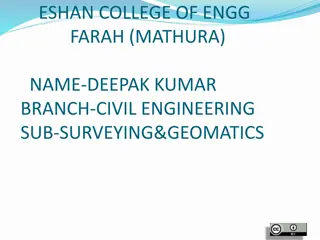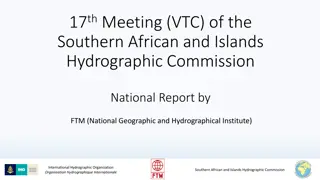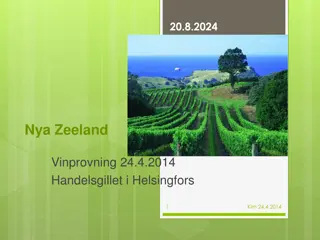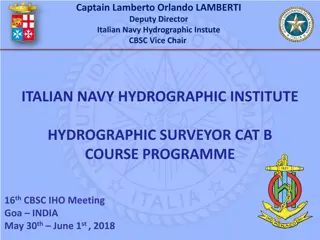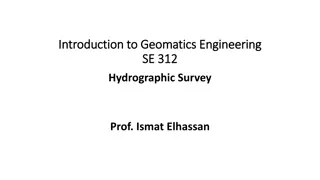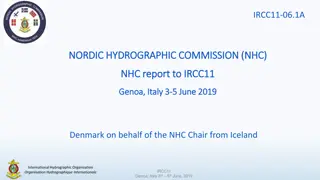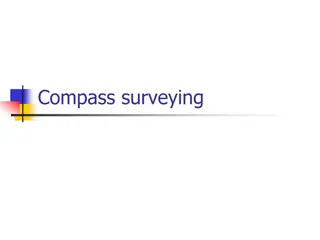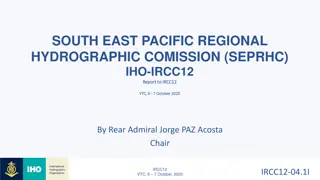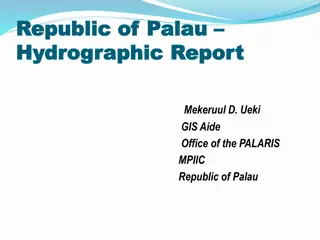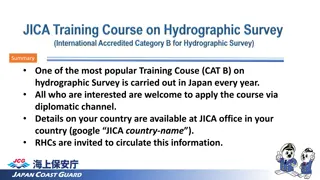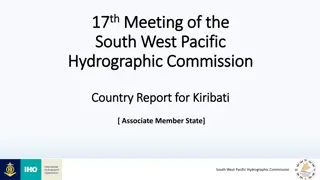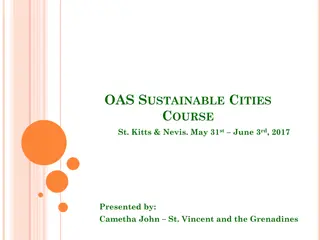Hydrographic Surveying in Saint Vincent and the Grenadines
Saint Vincent and the Grenadines face challenges in hydrographic surveying due to lack of trained personnel, equipment, and compliance with international obligations. Efforts are being made through regional projects to develop hydrographic services and improve nautical chart production.
Download Presentation

Please find below an Image/Link to download the presentation.
The content on the website is provided AS IS for your information and personal use only. It may not be sold, licensed, or shared on other websites without obtaining consent from the author.If you encounter any issues during the download, it is possible that the publisher has removed the file from their server.
You are allowed to download the files provided on this website for personal or commercial use, subject to the condition that they are used lawfully. All files are the property of their respective owners.
The content on the website is provided AS IS for your information and personal use only. It may not be sold, licensed, or shared on other websites without obtaining consent from the author.
E N D
Presentation Transcript
St. Vincent and the Grenadines PRESENTED BY SVGMARAD
Hydrographic charts of the waters of Saint Vincent and the Grenadines (SVG) Hydrographic surveys of the waters of SVG were conducted mainly in the 19th Century Limitations SVG currently does not have personnel who are formally trained in hydrographic surveying, vessels and equipment for the conduct of such surveys, nor equipment for the production of nautical charts. SVG, (like other OECS Member States), does not comply fully with obligations in the International Convention on Safety of Life at Sea, 1978, as amended, for maintenance of up-to-date nautical of waters under its jurisdiction and for provision hydrographic information to the international community.
OECS Hydrographic Project Scoping Study 2012, at the 55th OECS Authority meeting, the Government of Antigua and Barbuda with input and support from the United Kingdom Hydrographic Office tabled a concept paper entitled The Development of Hydrographic Services in the Eastern Caribbean . This paper proposed a regional study, aimed at undertaking a gap analysis to identify inter alia the needs regarding hydrographic data and survey priorities in each member state. The field visit for St Vincent and the Grenadines took place between 11-13 August, 2014
OECS Hydrographic Project Scoping Study Stakeholder agencies: Maritime administration, Coast Guard and Fisheries division. Assistance to develop standards for hydrographic data, along with developing a closer working relationship with the UKHO Defining general FAD areas Formation of National hydrographic committee
Hydrographic Surveys 2015 hydrographic survey conducted were conducted by the United States Navy Fleet Survey Team in Campden Park Bay, Kingstown Harbour and Greathead Bay, south Coast of Saint Vincent Digital Nautical Charts (DNC) affected: NGA A 1411640 and H1411640 Charts affected: US 25483 (Kingstown Harbor and Approaches) US 25484 (Saint Vincent to Baquia) Project Neptune, renamed: Commonwealth marine Economies Program RELEASE OF DATA IN SUPPORT OF PROGRAMME NEPTUNE exclusively for assessment to determine fitness for production of navigational charts and related hydrographic information in compliance with Order 1a generally, and Special Order as appropriate, as defined in the International Hydrographic Organization (IHO) Special Publication No. 44, Fifth Edition (February 2008).
FOCAHIMECA strengthening of hydrographic capacities in Mesoamerica and the Caribbean through the standardization of the nautical cartography that will enhance the development of economic and maritime area and guarantee the safety of maritime navigation , led my the Mexican Navy Specific Goals: To create and/or to boost hydrographic capacities in the countries and territories of Mesoamerica and the Caribbean. To increase the bathymetric database of maritime zones. To ensure the safety of merchant and tourism ships between ports . To create and/or increase the efficiency of the shipping lanes and port infrastructure with the aim to foster the economic and maritime development, on the basis of the information collected by the interconnectivity of the ports in Latin America.
Programme Neptune Programme Neptune exists to support the sustainable growth of Commonwealth Small Island Developing States (SIDS), providing them with the information, skills and expertise to monitor and manage their surrounding marine environment and ensure the sustainable development of their blue economies.
Neptune Seabed mapping activities within Grenada and St Vincent and the Grenadines have commenced. Hydrographic data will be fed into the UKHO s charting teams and result in updates of local navigational products Training will be provided to local stakeholders throughout the project, from data collection, to analysis and use of the resulting data. This will enable stakeholders to continue efforts as data become available or adapt products to fulfil their particular needs.
